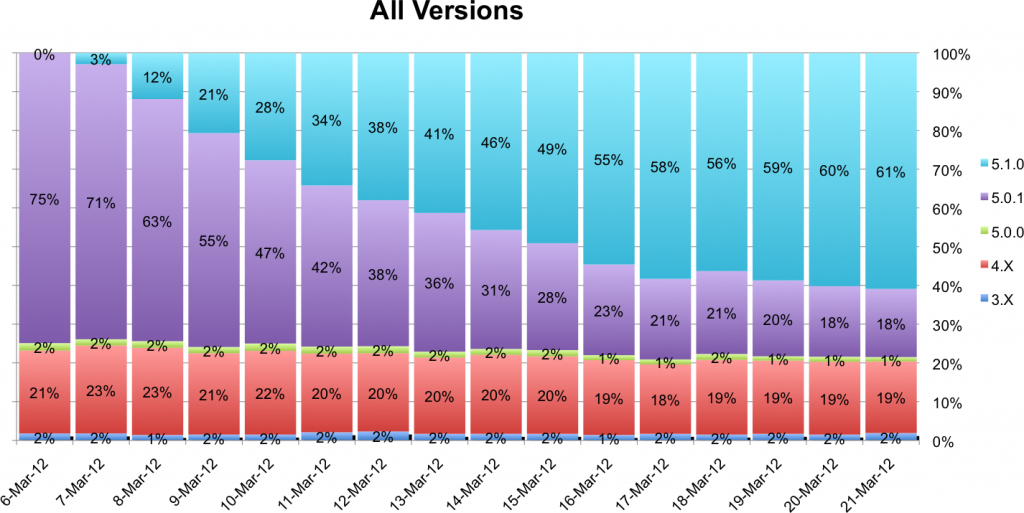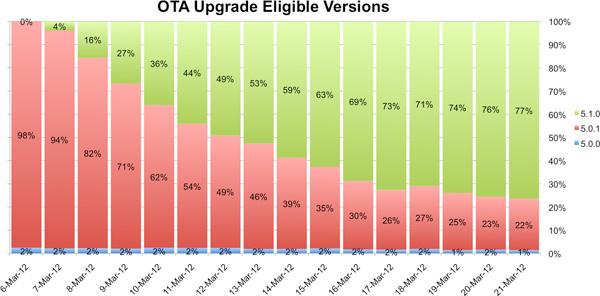Apple has always had a great record when it comes to adoption of software updates, mainly owing to the lack of fragmentation as seen on android devices. If recent stats are anything to go by, nearly 61% of the iOS users have upgraded to the latest version of iOS 5.1, in just over a fortnight, since the update was released OTA, on March 7, 2012.
The statistical data was collected by David Smith, creator of the Audiobooks app, currently available for both iPhone and iPad in free and paid variants, from the users downloading the app, ever since the release of iOS 5.1 by Apple.

As per Smith’s statistics, Apple’s iOS 5.1 has seen a record adoption of 61% in only about 15 days which is way better than the adoption rate seen by Google’s Android Gingerbread (API level 10), which is currently the most widely adopted version on the Android platform.

Though Smith, points out to a very interesting fact here. As per the stats accumulated by him, when you take into account stats for only five days after release the adoption rate of iOS 5.0.1 was better than iOS 5.1, with the latter taking a few hours more to make it to 50% on the 5th day after it’s release.
The other reason for the second bar graph is to emphasize the fact as to how OTA (over the air) wireless updates have facilitated the faster adoption of newer updates by the users. Though the release of the New iPad (iPad 3) is also one of the major reasons for iOS 5.1 outpacing iOS 5.0.1 which did not see any hardware being released along with the software.
Such regular updates of the firmware is beneficial to both, the end user as well as software developers. For the end user, the update guarantees overall stability and improved performance of the their device, whereas the developers have their task made easy since they know that they would have to test their apps on a fewer versions of the iOS platform.
Smith also says that it wouldn’t be really fair to compare the update adoption scenario on Android with Apple for the simple fact that there are multiple manufacturers on Google’s platform and the resulting fragmentation delays the update for each manufacturer resulting in less option for the users to adopt to the latest software versions.
But in the end he also states that the fact that his job is made way easier on the iOS platform by having to test on lesser versions and also the guarantee of quicker adoption by its users makes the platform his preferred choice for development.
Well the others developers can decide for themselves but for us, David Smith’s reasoning is indeed tempting enough to fall in line with him. 😉 And we are pretty sure that there are a lot of other aspects that matter when a developer decides to build an app for a particular platform. Do let us know what you think about this but make sure you do it from a developers perspective.





